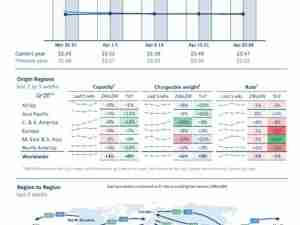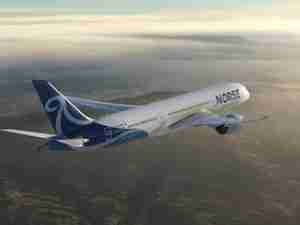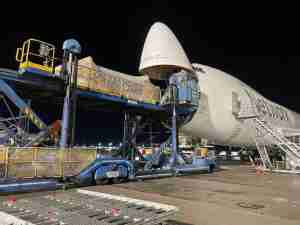Airbus SE and Boeing Co. last year booked their largest jet-sales hauls since the pandemic and the 737 Max grounding flattened demand for jetliners — but supplier and labor shortfalls are still hampering efforts to ramp up manufacturing.
The planemaker duopoly booked 1,628 net new orders last year, the best showing since 2018. Boeing finished particularly strongly in December, signaling that its recovery is gaining momentum. The company recorded its highest monthly deliveries in four years and largest gross order tally in five years.
Boeing’s recent turnaround has propelled its shares, which have soared more than 70% since the end of September to lead the Dow Jones Industrial Average. Shares of rival Airbus SE have risen about 30% over the same stretch, even though it sold, produced and delivered more aircraft than Boeing in 2022.
Despite a strong December, Boeing’s tally of 480 deliveries for the full year fell short of its European counterpart’s, giving Airbus bragging rights as world’s largest planemaker for a fourth consecutive year. Toulose, France-based Airbus secured net orders for 820 planes, versus 808 for Boeing. It delivered 661 aircraft, well below the company’s earlier goal of 700.
“We are limited by supply,” Airbus Chief Executive Officer Guillaume Faury told reporters on Tuesday. “The headwinds of the complexity of the supply chain remains in 2023. And it will be challenging, it will remain challenging to ramp up in this environment.”
Supply-chain disruption prompted Airbus to abandon the goal early last month. The planemaker previously cut its original target of 720 handovers for 2022 in July.
Boeing said earlier Tuesday that it handed over 69 jets in December — including 54 from its cash-cow 737 family — and recorded 250 gross orders. The performance gave Boeing 387 deliveries of the narrowbody jetliner family for the year, a dozen more than executives had predicted.
Both manufacturers have struggled to make good on sales commitments as the pandemic has eased, leaving them with shortages of components and skilled workers. Boeing still managed to deliver 10 of its 787 Dreamliners last month while it slows work in its South Carolina factories to deal with late-arriving shipments from Spirit AeroSystems Holdings Inc.
The December delivery totals support Boeing’s guidance for $2.5 billion of free cash flow in the fourth quarter, Sheila Kahyaoglu of Jefferies wrote in a Jan. 9 note. She projects Boeing’s cash will rise to $3.8 billion this year, while the planemaker expands its jet shipments by 17% from 2022 totals. Boeing is scheduled to report fourth-quarter earnings on Jan. 25, while Airbus is due to report on Feb. 16.
“As the airline industry expands its recovery, we are seeing strong demand across our product family,” said Stan Deal, Boeing’s commercial airplanes chief. “We will stay focused on driving stability within our operations and the supply chain as we work to deliver for our customers in 2023 and beyond.”









